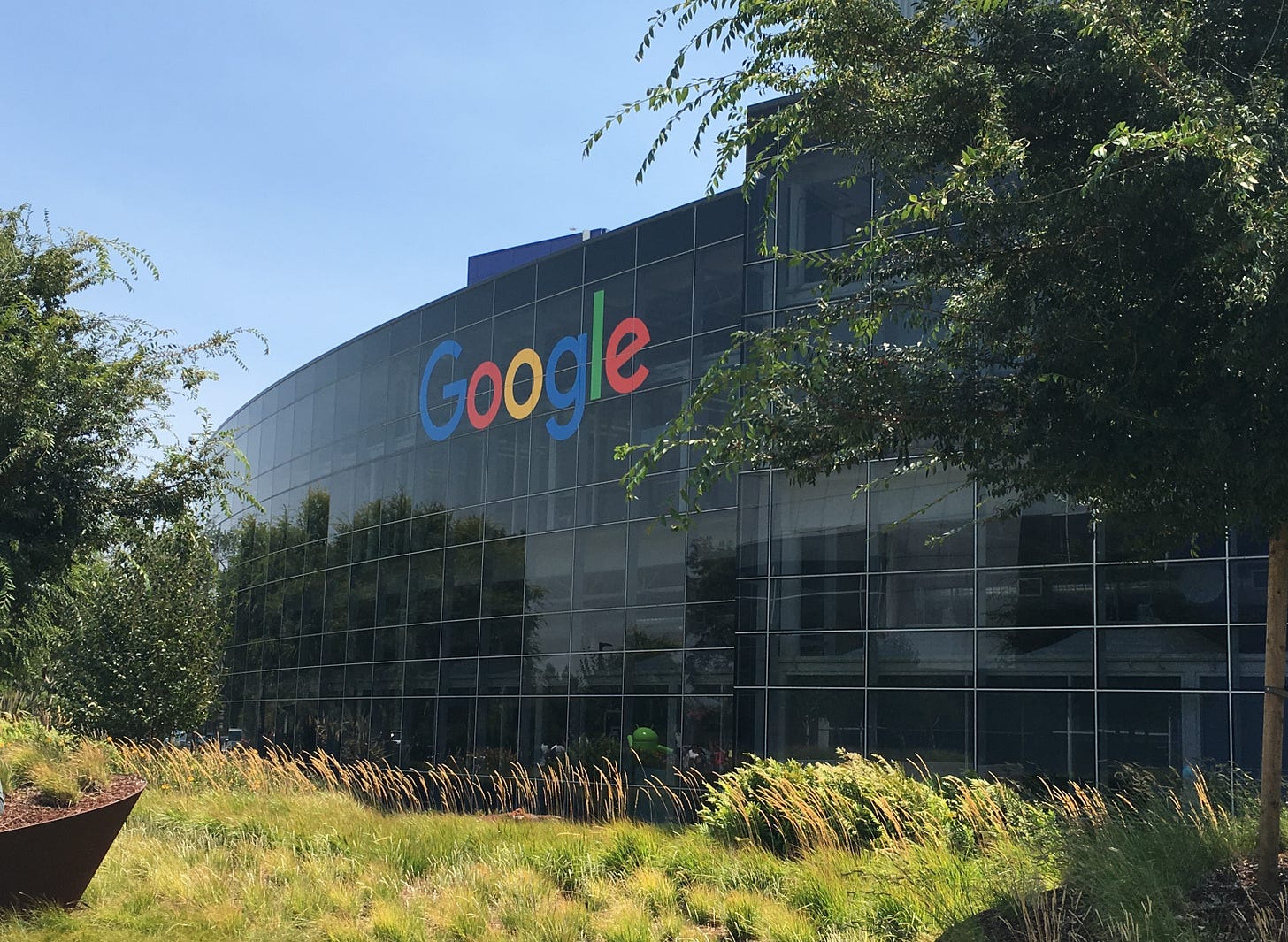Google's $26 Billion Spend to Be Your Default Search Engine
Why? And, What's Wrong With It?

The Battle for ‘Default’ Supremacy
In the high-stakes arena of digital real estate, the most prized territory is that small, unassuming setting on your devices—the ‘default search engine’. This is a battleground where Google has entrenched itself with the determination and resources of a tech titan, recognizing that an excellent product can often languish unseen if it's not positioned right in front of the consumer's eyes. But the implications of Google's dominance extend far beyond the convenience of a pre-set search bar; they touch the nerve center of a sprawling digital ecosystem where power, privacy, and profit intersect. Google's relentless pursuit to maintain its status as the default search engine isn't just a testament to its business acumen—it's a chess move in a game that controls how information is accessed, used, and monetized, dictating the flow of billions of dollars and the direction of personal data streams across the globe.
Google wants to be the first thing you see
Google’s strategy is simple yet profound: Ensure that when you reach for your device, their search engine greets you, ready and waiting. This seemingly benign convenience masks a complex web of financial deals and strategic placements that raises fundamental questions about the nature of choice in the digital age. It's not just about being the best but about being the first—the pre-selected option for millions who might not even pause to consider the alternatives. In this digital landscape, visibility equates to dominance, and Google’s fight to stay at the forefront is as much about preserving its kingdom as it is about guiding the unsuspecting user through the vast and often overwhelming terrain of the internet.
The Cost of Default Status
The tech giant has been revealed to shell out colossal sums, specifically $26.3 billion in 2021, to ensure its search engine remains the pre-installed choice on devices from Apple to Samsung. This figure eclipses the annual revenue of entities like McDonald's, which is testament to the immense value Google places on being your go-to search engine. At the heart of this issue is a seemingly inconspicuous setting that holds the key to your digital footprint: your default search engine. This default not only dictates the accessibility of information but also who harnesses your data and how much advertising real estate you're subjected to.
The Default Power Play
Why does a default setting matter so much to Google? The tech behemoth has been paying humongous premiums to device manufacturers to not only set Google as the default but also to limit other search engine offerings during initial device setup. This strategy has raised questions about consumer autonomy and the competitive fairness in the tech industry.
Antitrust Spotlight: The Government's Case Vs Google's Defence
In the antitrust arena, Google's expansive reach has come under the intense scrutiny of a landmark trial in Washington D.C. Central to this legal storm is the question of whether Google's massive payments to device manufacturers, to ensure its search engine is locked in as the default, violate antitrust laws. The Government's case hinges on the assertion that Google's strategies have stifled competition, herded consumers into a walled garden of its making, and inflated advertising costs due to lack of competition. This encroachment, the prosecution argues, has not only unfairly disadvantaged rivals like DuckDuckGo and Bing but also harmed the consumer by reducing choice and transparency.
It’s All About Consumer Choice: Google
In the other corner, Google's defence frames this dominance as the byproduct of meritocracy and superior service. Google posits that their position at the apex of the search engine hierarchy is not a result of anticompetitive practices but is the fruit of innovation and efficiency that users have organically gravitated towards. Pointing to instances such as Apple's consideration of other search engines, Google aims to illustrate that competition is alive and well — and that their place as the default option is neither a certainty nor a permanent fixture.
The delicate dance of negotiation between Google and technology juggernaut Apple is also pulled into the spotlight. The government paints a picture of Google's overarching power, suggesting that even Apple, a titan in its own right, cannot escape Google's orbit. Meanwhile, Google counters by exposing the intricacies and concessions within their deals with Apple, arguing that this back-and-forth is the hallmark of a competitive, rather than monopolistic, negotiation.
As the trial unfolds, what's clear is that the outcome has the potential to not just redefine the operational contours of Google but also to set new precedents for competition and corporate conduct in the digital age. The verdict will inevitably send ripples across the tech industry, shaping how companies position their products in the crowded marketplace and how consumers interact with the digital world at their fingertips.
Questioning the Quo
The pivotal question that arises is: If Google's service is superior, why the need to invest so heavily in default settings? Does this reflect a lack of confidence in user choice, or is it an aggressive tactic to stifle competition before it can present an alternative?
The Illusion of Choice
Google posits that changing your search engine is straightforward. However, real-world tests reveal a different story. Many users find the process daunting and confusing—a result that seems to align perfectly with Google's intent.
Tech Giants on the Defensive
Companies like Apple and Samsung, who profit from Google's default setting payouts, face a moral quandary. While espousing user-centric values and privacy, they simultaneously partake in deals that potentially undermine these principles.
Embracing Alternatives
Beyond Google's reach, there exist alternative search engines like Bing, which offers rewards for usage, or Ecosia, which champions environmental causes. DuckDuckGo, prioritizing privacy, has become a sanctuary for those seeking refuge from the pervasive tracking of larger search engines.
The Balance of Power in a Digital Economy
The conversation ultimately pivots to a crucial junction—how monopolistic practices can smother the spark of innovation and limit the consumer's freedom to choose. Google's hefty price tag for securing its default search engine status on various platforms is more than a commercial move; it's a chess play that challenges the foundational tenets of user autonomy and equitable market conditions. The spectre of these defaults casts a long shadow, potentially obscuring superior alternatives and innovations that struggle to find daylight amidst the overshadowing presence of a pre-selected search engine.
Customer is the King: Assert Your Sovereignty
This antitrust battle against Google stands at the forefront of a pivotal moment, not just for the American legal system, but as a bellwether for international regulatory standards that are still catching up with the juggernauts of the tech industry. While Google asserts that their dominance is a fair result of market forces, the guardians of market competition are tasked with a delicate mission: to dismantle any barriers that preclude fair play and to ensure that technological progress does not come at the expense of consumer sovereignty or inflated costs. The enduring principle that 'The Customer is King' must continue to guide the market, compelling us to scrutinize the default options set before us and to remain vigilant in our quest for choices that serve not just our immediate needs but also the greater good of a diverse and dynamic digital marketplace1.
Sundar Pichai's Testifies as Google's Star Witness in U.S. Antitrust Case
The Power of Default: A Contested Terrain Sundar Pichai, the CEO of Google, on Monday, October 30, 2023 testified in a landmark U.S. antitrust case, underscor…





